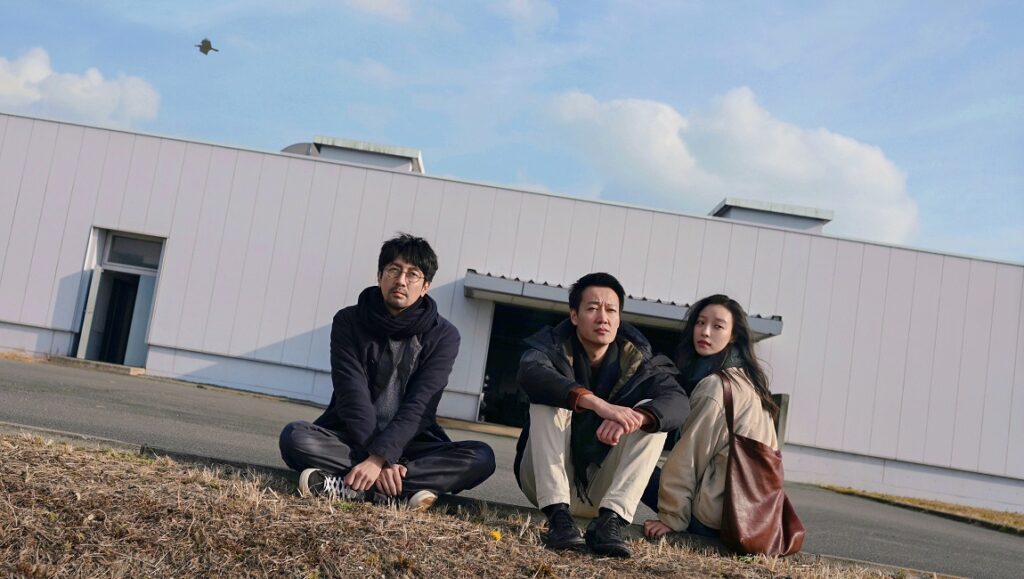Zhang Lu has proved a unique presence in 21st-century film: A Korean-Chinese literary intellectual of the 1980s who became a little-known cult figure in the outsider DV movement in 2000s China, he then defected to South Korea at the exact moment that wave began to terminally recede. Over the 2010s, Zhang gradually moved to the fore of the Korean indie scene, and just at the moment the Korean wave was peaking in the Western world, he defected again, at first to Japan and ultimately back to China, even as growing political hostility to China in the West is manifesting as cultural isolationism. His newly released — in the West, anyway — Yanagawa represents the pivotal point of that last transition, but it’s anything but a digression. Superficially, the film heavily parallels Zhang’s preceding feature, Fukuoka; both follow yearnful, middle-aged East Asian intellectuals as they journey to Northern Kyushu in search of lost love. It would be easy to posit a hackneyed thesis like “Zhang is saying ‘x’ about inter-Asian social dynamics,” but his work operates on a more nuanced register than that, one concerned with the way complex intercultural dynamics subtly influence the already knotted web of interpersonal relationships. Characters are universally allegorical rather than avatars of nations or class. The dual settings of Beijing and Yanagawa are triangulated with occasional reference to the distant, unseen apex of London. Consider how Zhang’s 2005 feature debut, Tang Poetry, contrasted a direct, imagistic, raw depiction of emptiness and domestic violence with the elliptical textual density of the medium that film took as its titular subject.
In Yanagawa, the audience finds themselves at the other extremity of the relational spectrum: complete unity. Every image is steeped in text; there is no shot that does not center a character, just as there is no text that is semiotically distinct within a composition. Every image in the film is in an unusual aesthetic harmony with the moment that meets it. The editorial grammar is understated and appropriately punctuated. The cinematography is subtly obfuscatory and tightly bound by rules, as is the meandering but dramatically austere story. We see people using their phones but never what is on them. Characters act with a deliberateness so overwrought as to be indistinguishable from reckless impulse. Despite a cultivated artifice of “realism,” the dialogue is often bizarre and non-naturalistic, each line a functional hook in a continuity of poetic logic. For example: in the opening sequence, central character Dong (Zhang Liuyi) tells a complete stranger that he has been diagnosed with stage-four cancer in a bizarre and unempathetic exchange, but for the rest of the film, he obscures this fact from the people he loves most, to his own detriment. Each textual construct in Yanagawa functions this way, as irony, or as contrast, or as disconnect, compounding loops of meaning within loops of feeling. Cumulatively the effect is novelistic in the best way possible, building a metatextual schema in the viewer’s mind as the film progresses, a nebula of intrigue and implication demanding analysis from its audience. Zhang is like an ambient narrativist, reveling in minute textural shifts in feeling and affect, and maintaining intrigue and a subtle aesthetic build across duration. On a more tangible level, Yanagawa‘s mournful longing is relatable to anyone who has experienced the sad misdirects of love, without seeking to reflect common experiences back at its audience.
Published as part of InRO Weekly — Volume 1, Issue 9.


Comments are closed.